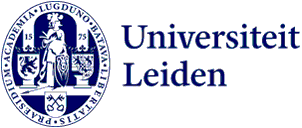
Ethical guidelines to better regulate DNA research on human remains
Rapid developments in DNA techniques allow researchers to find out more and more about human genetics. An international group of scientists has drawn up five ethical guidelines to ensure that this DNA research is better regulated. Leiden archaeologist Marie Soressi – one of the signatories - explains why this is an important milestone.
The guidelines have been published in Nature. Why have these guidelines been developed at this particular time?
‘DNA research on human remains is booming. That's because the technology is getting better and better. Where reading the total DNA code of a human in the late 90s would take a decade, now you can do it in a few days. More than that, it is also now possible to reconstruct the genome of extinct human species like the Neandertals from minutes amount of ultrashort ancient DNA fragments preserved in ancient bones or ancient soils. This has opened many new doors in science, but it also creates new ethical dilemmas.’
You yourself conduct research on the early ancestors of modern man. What dilemmas do you come across?
‘Genetic research is sensitive because in the past we have seen that the results have sometimes been misused for political purposes. Biological differences between groups can be magnified, leading to the most extreme example of the racial theories of Nazi Germany. Our aim with these five guidelines is for us as archaeologists, geneticists, curators and anthropologists to make it clear that we have to remain alert to this kind of misuse. We warn that it is inappopriate to reduce people to their biological identity because we are so much more than that.'
The five ethical guidelines for DNA research
1. Research must observe all the rules of the location where they are working and where the human remains originate from.
2. Researchers must make a detailed plan before starting their research.
3. Researchers must minimise any damage to human remains.
4. Researchers must make sure that data are available after publication so that scientific discoveries can be reproduced.
5. From the start of their research, researchers must involve other stakeholders in their research and must respect their viewpoint.
It seems to me that with 65 scientists from 24 countries it cannot be easy to reach agreement on such a sensitive issue.
‘It really wasn't that bad. We talked about the issues for two days and by the end of the time we had reached an agreement. The most difficult thing was making sure that these ethical guidelines are applicable worldwide because every region has different norms for handling human remains. We eventually narrowed things down to five universal principles (see box). These are not set in stone, but are an initial attempt to open the discussion. It is a young field so there is a lot of opportunity for debate. That is also the reason why we are making our guidelines available through open access and translating them into twenty languages.'
Some guidelines seem pretty obvious, such as the rule that researchers must minimise the damage to human remains. Why is it important to state this explicitly?
‘Whether or not something is obvious depends on your perspective. A curator of a museum will mainly be concerned with preserving human remains. A scientist, on the other hand, will want to study these same remains, which may mean he or she causes some damage in order to extract DNA. We want these guidelines to highlight this conflict so that as a scientific community we can have a discussion about it.’
Read more: Genetics proves that Indo-European did not come to Europe on horseback
Horses were first domesticated in South-West Russia, is the conclusion of an international team of researchers in the respected journal Nature. This finding resolves an ancient archaeological issue. But, surprisingly, this domestication of horses did not contribute to the rapid spread of Indo-European languages in Europe, a Leiden sub-study has shown.
